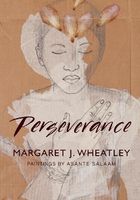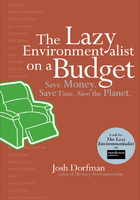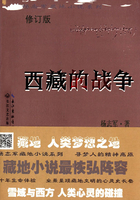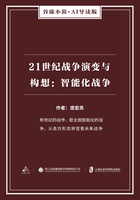Isabel Pervin was listening for two sounds-for the sound of wheels on the drive outside and for the noise of her husband's footsteps in the hall. Her dearest and oldest friend, a man who seemed almost indispensable to her living, would drive up in the rainy dusk of the closing November day. The trap had gone to fetch him from the station. And her husband, who had been blinded in Flanders, and who had a disfiguring mark on his brow, would be coming in from the outhouses.
He had been home for a year now. He was totally blind. Yet they had been very happy. The Grange was Maurice's own place. The back was a farmstead, and the Wernhams, who occupied the rear premises, acted as farmers. Isabel lived with her husband in the handsome rooms in front. She and he had been almost entirely alone together since he was wounded. They talked and sang and read together in a wonderful and unspeakable intimacy. Then she reviewed books for a Scottish newspaper, carrying on her old interest, and he occupied himself a good deal with the farm. Sightless, he could still discuss everything with Wernham, and he could also do a good deal of work about the place-menial work, it is true, but it gave him satisfaction. He milked the cows, carried in the pails, turned the separator, attended to the pigs and horses. Life was still very full and strangely serene for the blind man, peaceful with the almost incomprehensible peace of immediate contact in darkness. With his wife he had a whole world, rich and real and invisible.
They were newly and remotely happy. He did not even regret the loss of his sight in these times of dark, palpable joy. A certain exultance swelled his soul.
But as time wore on, sometimes the rich glamour would leave them. Sometimes, after months of this intensity, a sense of burden overcame Isabel, a weariness, a terrible ennui, in that silent house approached between a colonnade of tall-shafted pines. Then she felt she would go mad, for she could not bear it. And sometimes he had devastating fits of depression, which seemed to lay waste his whole being. It was worse than depression-a black misery, when his own life was a torture to him, and when his presence was unbearable to his wife. The dread went down to the roots of her soul as these black days recurred. In a kind of panic she tried to wrap herself up still further in her husband. She forced the old spontaneous cheerfulness and joy to continue. But the effort it cost her was almost too much. She knew she could not keep it up. She felt she would scream with the strain, and would give anything, anything, to escape. She longed to possess her husband utterly; it gave her inordinate joy to have him entirely to herself. And yet, when again he was gone in a black and massive misery, she could not bear him, she could not bear herself; she wished she could be snatched away off the earth altogether, anything rather than live at this cost.
Dazed, she schemed for a way out. She invited friends, she tried to give him some further connexion with the outer world. But it was no good. After all their joy and suffering, after their dark, great year of blindness and solitude and unspeakable nearness, other people seemed to them both shallow, prattling, rather impertinent. Shallow prattle seemed presumptuous. He became impatient and irritated, she was wearied. And so they lapsed into their solitude again. For they preferred it.
But now, in a few weeks' time, her second baby would be born. The first had died, an infant, when her husband first went out to France. She looked with joy and relief to the coming of the second. It would be her salvation. But also she felt some anxiety. She was thirty years old, her husband was a year younger. They both wanted the child very much. Yet she could not help feeling afraid. She had her husband on her hands, a terrible joy to her, and a terrifying burden. The child would occupy her love and attention. And then, what of Maurice? What would he do? If only she could feel that he, too, would be at peace and happy when the child came! She did so want to luxuriate in a rich, physical satisfaction of maternity. But the man, what would he do? How could she provide for him, how avert those shattering black moods of his, which destroyed them both?
She sighed with fear. But at this time Bertie Reid wrote to Isabel. He was her old friend, a second or third cousin, a Scotchman, as she was a Scotchwoman. They had been brought up near to one another, and all her life he had been her friend, like a brother, but better than her own brothers. She loved him-though not in the marrying sense. There was a sort of kinship between them, an affinity. They understood one another instinctively. But Isabel would never have thought of marrying Bertie. It would have seemed like marrying in her own family.
Bertie was a barrister and a man of letters, a Scotchman of the intellectual type, quick, ironical, sentimental, and on his knees before the woman he adored but did not want to marry. Maurice Pervin was different. He came of a good old country family-the Grange was not a very great distance from Oxford. He was passionate, sensitive, perhaps over-sensitive, wincing-a big fellow with heavy limbs and a forehead that flushed painfully. For his mind was slow, as if drugged by the strong provincial blood that beat in his veins. He was very sensitive to his own mental slowness, his feelings being quick and acute. So that he was just the opposite to Bertie, whose mind was much quicker than his emotions, which were not so very fine.
From the first the two men did not like each other. Isabel felt that they ought to get on together. But they did not. She felt that if only each could have the clue to the other there would be such a rare understanding between them. It did not come off, however. Bertie adopted a slightly ironical attitude, very offensive to Maurice, who returned the Scotch irony with English resentment, a resentment which deepened sometimes into stupid hatred.
This was a little puzzling to Isabel. However, she accepted it in the course of things. Men were made freakish and unreasonable. Therefore, when Maurice was going out to France for the second time, she felt that, for her husband's sake, she must discontinue her friendship with Bertie. She wrote to the barrister to this effect. Bertram Reid simply replied that in this, as in all other matters, he must obey her wishes, if these were indeed her wishes.
For nearly two years nothing had passed between the two friends. Isabel rather gloried in the fact; she had no compunction. She had one great article of faith, which was, that husband and wife should be so important to one another, that the rest of the world simply did not count. She and Maurice were husband and wife. They loved one another. They would have children. Then let everybody and everything else fade into insignificance outside this connubial felicity. She professed herself quite happy and ready to receive Maurice's friends. She was happy and ready: the happy wife, the ready woman in possession. Without knowing why, the friends retired abashed and came no more. Maurice, of course, took as much satisfaction in this connubial absorption as Isabel did.
He shared in Isabel's literary activities, she cultivated a real interest in agriculture and cattle-raising. For she, being at heart perhaps an emotional enthusiast, always cultivated the practical side of life, and prided herself on her mastery of practical affairs. Thus the husband and wife had spent the five years of their married life. The last had been one of blindness and unspeakable intimacy. And now Isabel felt a great indifference coming over her, a sort of lethargy. She wanted to be allowed to bear her child in peace, to nod by the fire and drift vaguely, physically, from day to day. Maurice was like an ominous thunder-cloud. She had to keep waking up to remember him.
When a little note came from Bertie, asking if he were to put up a tombstone to their dead friendship, and speaking of the real pain he felt on account of her husband's loss of sight, she felt a pang, a fluttering agitation of re-awakening. And she read the letter to Maurice.
'Ask him to come down,' he said.
'Ask Bertie to come here!' she re-echoed.
'Yes-if he wants to.'
Isabel paused for a few moments.
'I know he wants to-he'd only be too glad,' she replied. 'But what about you, Maurice? How would you like it?'
'I should like it.'
'Well-in that case-But I thought you didn't care for him-'
'Oh, I don't know. I might think differently of him now,' the blind man replied. It was rather abstruse to Isabel.
'Well, dear,' she said, 'if you're quite sure-'
'I'm sure enough. Let him come,' said Maurice.
So Bertie was coming, coming this evening, in the November rain and darkness. Isabel was agitated, racked with her old restlessness and indecision. She had always suffered from this pain of doubt, just an agonizing sense of uncertainty. It had begun to pass off, in the lethargy of maternity. Now it returned, and she resented it. She struggled as usual to maintain her calm, composed, friendly bearing, a sort of mask she wore over all her body.
A woman had lighted a tall lamp beside the table, and spread the cloth. The long dining-room was dim, with its elegant but rather severe pieces of old furniture. Only the round table glowed softly under the light. It had a rich, beautiful effect. The white cloth glistened and dropped its heavy, pointed lace corners almost to the carpet, the china was old and handsome, creamy-yellow, with a blotched pattern of harsh red and deep blue, the cups large and bell-shaped, the teapot gallant. Isabel looked at it with superficial appreciation.
Her nerves were hurting her. She looked automatically again at the high, uncurtained windows. In the last dusk she could just perceive outside a huge fir-tree swaying its boughs: it was as if she thought it rather than saw it. The rain came flying on the window panes. Ah, why had she no peace? These two men, why did they tear at her? Why did they not come-why was there this suspense?
She sat in a lassitude that was really suspense and irritation. Maurice, at least, might come in-there was nothing to keep him out. She rose to her feet. Catching sight of her reflection in a mirror, she glanced at herself with a slight smile of recognition, as if she were an old friend to herself. Her face was oval and calm, her nose a little arched. Her neck made a beautiful line down to her shoulder. With hair knotted loosely behind, she had something of a warm, maternal look. Thinking this of herself, she arched her eyebrows and her rather heavy eyelids, with a little flicker of a smile, and for a moment her grey eyes looked amused and wicked, a little sardonic, out of her transfigured Madonna face.
Then, resuming her air of womanly patience-she was really fatally self-determined-she went with a little jerk towards the door. Her eyes were slightly reddened.
She passed down the wide hall, and through a door at the end. Then she was in the farm premises. The scent of dairy, and of farm-kitchen, and of farm-yard and of leather almost overcame her: but particularly the scent of dairy. They had been scalding out the pans. The flagged passage in front of her was dark, puddled and wet. Light came out from the open kitchen door. She went forward and stood in the doorway. The farm-people were at tea, seated at a little distance from her, round a long, narrow table, in the centre of which stood a white lamp. Ruddy faces, ruddy hands holding food, red mouths working, heads bent over the tea-cups: men, land-girls, boys: it was tea-time, feeding-time. Some faces caught sight of her. Mrs. Wernham, going round behind the chairs with a large black teapot, halting slightly in her walk, was not aware of her for a moment. Then she turned suddenly.
'Oh, is it Madam!' she exclaimed. 'Come in, then, come in! We're at tea.'
And she dragged forward a chair.
'No, I won't come in,' said Isabel, 'I'm afraid I interrupt your meal.'
'No-no-not likely, Madam, not likely.'
'Hasn't Mr. Pervin come in, do you know?'
'I'm sure I couldn't say! Missed him, have you, Madam?'
'No, I only wanted him to come in,' laughed Isabel, as if shyly.
'Wanted him, did ye? Get you, boy-get up, now-'
Mrs. Wernham knocked one of the boys on the shoulder. He began to scrape to his feet, chewing largely.
'I believe he's in top stable,' said another face from the table.
'Ah! No, don't get up. I'm going myself,' said Isabel.
'Don't you go out of a dirty night like this. Let the lad go. Get along wi' ye, boy,' said Mrs. Wernham.
'No, no,' said Isabel, with a decision that was always obeyed. 'Go on with your tea, Tom. I'd like to go across to the stable, Mrs. Wernham.'
'Did ever you hear tell!' exclaimed the woman.
'Isn't the trap late?' asked Isabel.
'Why, no,' said Mrs. Wernham, peering into the distance at the tall, dim clock. 'No, Madam-we can give it another quarter or twenty minutes yet, good-yes, every bit of a quarter.'
'Ah! It seems late when darkness falls so early,' said Isabel.
'It do, that it do. Bother the days, that they draw in so,' answered Mrs.
Wernham.' Proper miserable!'
'They are,' said Isabel, withdrawing.
She pulled on her overshoes, wrapped a large tartan shawl around her, put on a man's felt hat, and ventured out along the causeways of the first yard. It was very dark. The wind was roaring in the great elms behind the outhouses. When she came to the second yard the darkness seemed deeper. She was unsure of her footing. She wished she had brought a lantern. Rain blew against her. Half she liked it, half she felt unwilling to battle.
She reached at last the just visible door of the stable. There was no sign of a light anywhere. Opening the upper half, she looked in: into a simple well of darkness. The smell of horses, and ammonia, and of warmth was startling to her, in that full night. She listened with all her ears, but could hear nothing save the night, and the stirring of a horse.
'Maurice!' she called, softly and musically, though she was afraid.
'Maurice-are you there?'
Nothing came from the darkness. She knew the rain and wind blew in upon the horses, the hot animal life. Feeling it wrong, she entered the stable, and drew the lower half of the door shut, holding the upper part close. She did not stir, because she was aware of the presence of the dark hindquarters of the horses, though she could not see them, and she was afraid. Something wild stirred in her heart.
She listened intensely. Then she heard a small noise in the distance-far away, it seemed-the chink of a pan, and a man's voice speaking a brief word. It would be Maurice, in the other part of the stable. She stood motionless, waiting for him to come through the partition door. The horses were so terrifyingly near to her, in the invisible.
The loud jarring of the inner door-latch made her start; the door was opened. She could hear and feel her husband entering and invisibly passing among the horses near to her, in darkness as they were, actively intermingled. The rather low sound of his voice as he spoke to the horses came velvety to her nerves. How near he was, and how invisible! The darkness seemed to be in a strange swirl of violent life, just upon her. She turned giddy.
Her presence of mind made her call, quietly and musically:
'Maurice! Maurice-dea-ar!'
'Yes,' he answered. 'Isabel?'
She saw nothing, and the sound of his voice seemed to touch her.
'Hello!' she answered cheerfully, straining her eyes to see him. He was still busy, attending to the horses near her, but she saw only darkness. It made her almost desperate.
'Won't you come in, dear?' she said.
'Yes, I'm coming. Just half a minute. Stand over-now! Trap's not come, has it?'
'Not yet,' said Isabel.
His voice was pleasant and ordinary, but it had a slight suggestion of the stable to her. She wished he would come away. Whilst he was so utterly invisible she was afraid of him.
'How's the time?' he asked.
'Not yet six,' she replied. She disliked to answer into the dark.
Presently he came very near to her, and she retreated out of doors.
'The weather blows in here,' he said, coming steadily forward, feeling for the doors. She shrank away. At last she could dimly see him.
'Bertie won't have much of a drive,' he said, as he closed the doors.
'He won't indeed!' said Isabel calmly, watching the dark shape at the door.
'Give me your arm, dear,' she said.
She pressed his arm close to her, as she went. But she longed to see him, to look at him. She was nervous. He walked erect, with face rather lifted, but with a curious tentative movement of his powerful, muscular legs. She could feel the clever, careful, strong contact of his feet with the earth, as she balanced against him. For a moment he was a tower of darkness to her, as if he rose out of the earth.
In the house-passage he wavered, and went cautiously, with a curious look of silence about him as he felt for the bench. Then he sat down heavily. He was a man with rather sloping shoulders, but with heavy limbs, powerful legs that seemed to know the earth. His head was small, usually carried high and light. As he bent down to unfasten his gaiters and boots he did not look blind. His hair was brown and crisp, his hands were large, reddish, intelligent, the veins stood out in the wrists; and his thighs and knees seemed massive. When he stood up his face and neck were surcharged with blood, the veins stood out on his temples. She did not look at his blindness.
Isabel was always glad when they had passed through the dividing door into their own regions of repose and beauty. She was a little afraid of him, out there in the animal grossness of the back. His bearing also changed, as he smelt the familiar, indefinable odour that pervaded his wife's surroundings, a delicate, refined scent, very faintly spicy. Perhaps it came from the pot-pourri bowls.
He stood at the foot of the stairs, arrested, listening. She watched him, and her heart sickened. He seemed to be listening to fate.
'He's not here yet,' he said. 'I'll go up and change.'
'Maurice,' she said, 'you're not wishing he wouldn't come, are you?'
'I couldn't quite say,' he answered. 'I feel myself rather on the qui vive.'
'I can see you are,' she answered. And she reached up and kissed his cheek. She saw his mouth relax into a slow smile.
'What are you laughing at?' she said roguishly.
'You consoling me,' he answered.
'Nay,' she answered. 'Why should I console you? You know we love each other-you know how married we are! What does anything else matter?'
'Nothing at all, my dear.'
He felt for her face, and touched it, smiling.
'You're all right, aren't you?' he asked, anxiously.
'I'm wonderfully all right, love,' she answered. 'It's you I am a little troubled about, at times.'
'Why me?' he said, touching her cheeks delicately with the tips of his fingers. The touch had an almost hypnotizing effect on her.
He went away upstairs. She saw him mount into the darkness, unseeing and unchanging. He did not know that the lamps on the upper corridor were unlighted. He went on into the darkness with unchanging step. She heard him in the bathroom.
Pervin moved about almost unconsciously in his familiar surroundings, dark though everything was. He seemed to know the presence of objects before he touched them. It was a pleasure to him to rock thus through a world of things, carried on the flood in a sort of blood-prescience. He did not think much or trouble much. So long as he kept this sheer immediacy of blood-contact with the substantial world he was happy, he wanted no intervention of visual consciousness. In this state there was a certain rich positivity, bordering sometimes on rapture. Life seemed to move in him like a tide lapping, and advancing, enveloping all things darkly. It was a pleasure to stretch forth the hand and meet the unseen object, clasp it, and possess it in pure contact. He did not try to remember, to visualize. He did not want to. The new way of consciousness substituted itself in him.
The rich suffusion of this state generally kept him happy, reaching its culmination in the consuming passion for his wife. But at times the flow would seem to be checked and thrown back. Then it would beat inside him like a tangled sea, and he was tortured in the shattered chaos of his own blood. He grew to dread this arrest, this throw-back, this chaos inside himself, when he seemed merely at the mercy of his own powerful and conflicting elements. How to get some measure of control or surety, this was the question. And when the question rose maddening in him, he would clench his fists as if he would compel the whole universe to submit to him. But it was in vain. He could not even compel himself.
Tonight, however, he was still serene, though little tremors of unreasonable exasperation ran through him. He had to handle the razor very carefully, as he shaved, for it was not at one with him, he was afraid of it. His hearing also was too much sharpened. He heard the woman lighting the lamps on the corridor, and attending to the fire in the visitor's room. And then, as he went to his room he heard the trap arrive. Then came Isabel's voice, lifted and calling, like a bell ringing:
'Is it you, Bertie? Have you come?'
And a man's voice answered out of the wind:
'Hello, Isabell There you are.'
'Have you had a miserable drive? I'm so sorry we couldn't send a closed carriage. I can't see you at all, you know.'
'I'm coming. No, I liked the drive-it was like Perthshire. Well, how are you? You're looking fit as ever, as far as I can see.'
'Oh, yes,' said Isabel. 'I'm wonderfully well. How are you? Rather thin,
I think-'
'Worked to death-everybody's old cry. But I'm all right, Ciss. How's
Pervin?-isn't he here?'
'Oh, yes, he's upstairs changing. Yes, he's awfully well. Take off your wet things; I'll send them to be dried.'
'And how are you both, in spirits? He doesn't fret?'
'No-no, not at all. No, on the contrary, really. We've been wonderfully happy, incredibly. It's more than I can understand-so wonderful: the nearness, and the peace-'
'Ah! Well, that's awfully good news-'
They moved away. Pervin heard no more. But a childish sense of desolation had come over him, as he heard their brisk voices. He seemed shut out-like a child that is left out. He was aimless and excluded, he did not know what to do with himself. The helpless desolation came over him. He fumbled nervously as he dressed himself, in a state almost of childishness. He disliked the Scotch accent in Bertie's speech, and the slight response it found on Isabel's tongue. He disliked the slight purr of complacency in the Scottish speech. He disliked intensely the glib way in which Isabel spoke of their happiness and nearness. It made him recoil. He was fretful and beside himself like a child, he had almost a childish nostalgia to be included in the life circle. And at the same time he was a man, dark and powerful and infuriated by his own weakness. By some fatal flaw, he could not be by himself, he had to depend on the support of another. And this very dependence enraged him. He hated Bertie Reid, and at the same time he knew the hatred was nonsense, he knew it was the outcome of his own weakness.
He went downstairs. Isabel was alone in the dining-room. She watched him enter, head erect, his feet tentative. He looked so strong-blooded and healthy, and, at the same time, cancelled. Cancelled-that was the word that flew across her mind. Perhaps it was his scars suggested it.
'You heard Bertie come, Maurice?' she said.
'Yes-isn't he here?'
'He's in his room. He looks very thin and worn.'
'I suppose he works himself to death.'
A woman came in with a tray-and after a few minutes Bertie came down. He was a little dark man, with a very big forehead, thin, wispy hair, and sad, large eyes. His expression was inordinately sad-almost funny. He had odd, short legs.
Isabel watched him hesitate under the door, and glance nervously at her husband. Pervin heard him and turned.
'Here you are, now,' said Isabel. 'Come, let us eat.'
Bertie went across to Maurice.
'How are you, Pervin,' he said, as he advanced.
The blind man stuck his hand out into space, and Bertie took it.
'Very fit. Glad you've come,' said Maurice.
Isabel glanced at them, and glanced away, as if she could not bear to see them.
'Come,' she said. 'Come to table. Aren't you both awfully hungry? I am, tremendously.'
'I'm afraid you waited for me,' said Bertie, as they sat down.
Maurice had a curious monolithic way of sitting in a chair, erect and distant. Isabel's heart always beat when she caught sight of him thus.
'No,' she replied to Bertie. 'We're very little later than usual. We're having a sort of high tea, not dinner. Do you mind? It gives us such a nice long evening, uninterrupted.'
'I like it,' said Bertie.
Maurice was feeling, with curious little movements, almost like a cat kneading her bed, for his place, his knife and fork, his napkin. He was getting the whole geography of his cover into his consciousness. He sat erect and inscrutable, remote-seeming Bertie watched the static figure of the blind man, the delicate tactile discernment of the large, ruddy hands, and the curious mindless silence of the brow, above the scar. With difficulty he looked away, and without knowing what he did, picked up a little crystal bowl of violets from the table, and held them to his nose.
'They are sweet-scented,' he said. 'Where do they come from?'
'From the garden-under the windows,' said Isabel.
'So late in the year-and so fragrant! Do you remember the violets under
Aunt Bell's south wall?'
The two friends looked at each other and exchanged a smile, Isabel's eyes lighting up.
'Don't I?' she replied. 'Wasn't she queer!'
'A curious old girl,' laughed Bertie. 'There's a streak of freakishness in the family, Isabel.'
'Ah-but not in you and me, Bertie,' said Isabel. 'Give them to Maurice, will you?' she added, as Bertie was putting down the flowers. 'Have you smelled the violets, dear? Do!-they are so scented.'
Maurice held out his hand, and Bertie placed the tiny bowl against his large, warm-looking fingers. Maurice's hand closed over the thin white fingers of the barrister. Bertie carefully extricated himself. Then the two watched the blind man smelling the violets. He bent his head and seemed to be thinking. Isabel waited.
'Aren't they sweet, Maurice?' she said at last, anxiously.
'Very,' he said. And he held out the bowl. Bertie took it. Both he and
Isabel were a little afraid, and deeply disturbed.
The meal continued. Isabel and Bertie chatted spasmodically. The blind man was silent. He touched his food repeatedly, with quick, delicate touches of his knife-point, then cut irregular bits. He could not bear to be helped. Both Isabel and Bertie suffered: Isabel wondered why. She did not suffer when she was alone with Maurice. Bertie made her conscious of a strangeness.
After the meal the three drew their chairs to the fire, and sat down to talk. The decanters were put on a table near at hand. Isabel knocked the logs on the fire, and clouds of brilliant sparks went up the chimney. Bertie noticed a slight weariness in her bearing.
'You will be glad when your child comes now, Isabel?' he said.
She looked up to him with a quick wan smile.
'Yes, I shall be glad,' she answered. 'It begins to seem long. Yes, I shall be very glad. So will you, Maurice, won't you?' she added.
'Yes, I shall,' replied her husband.
'We are both looking forward so much to having it,' she said.
'Yes, of course,' said Bertie.
He was a bachelor, three or four years older than Isabel. He lived in beautiful rooms overlooking the river, guarded by a faithful Scottish man-servant. And he had his friends among the fair sex-not lovers, friends. So long as he could avoid any danger of courtship or marriage, he adored a few good women with constant and unfailing homage, and he was chivalrously fond of quite a number. But if they seemed to encroach on him, he withdrew and detested them.















